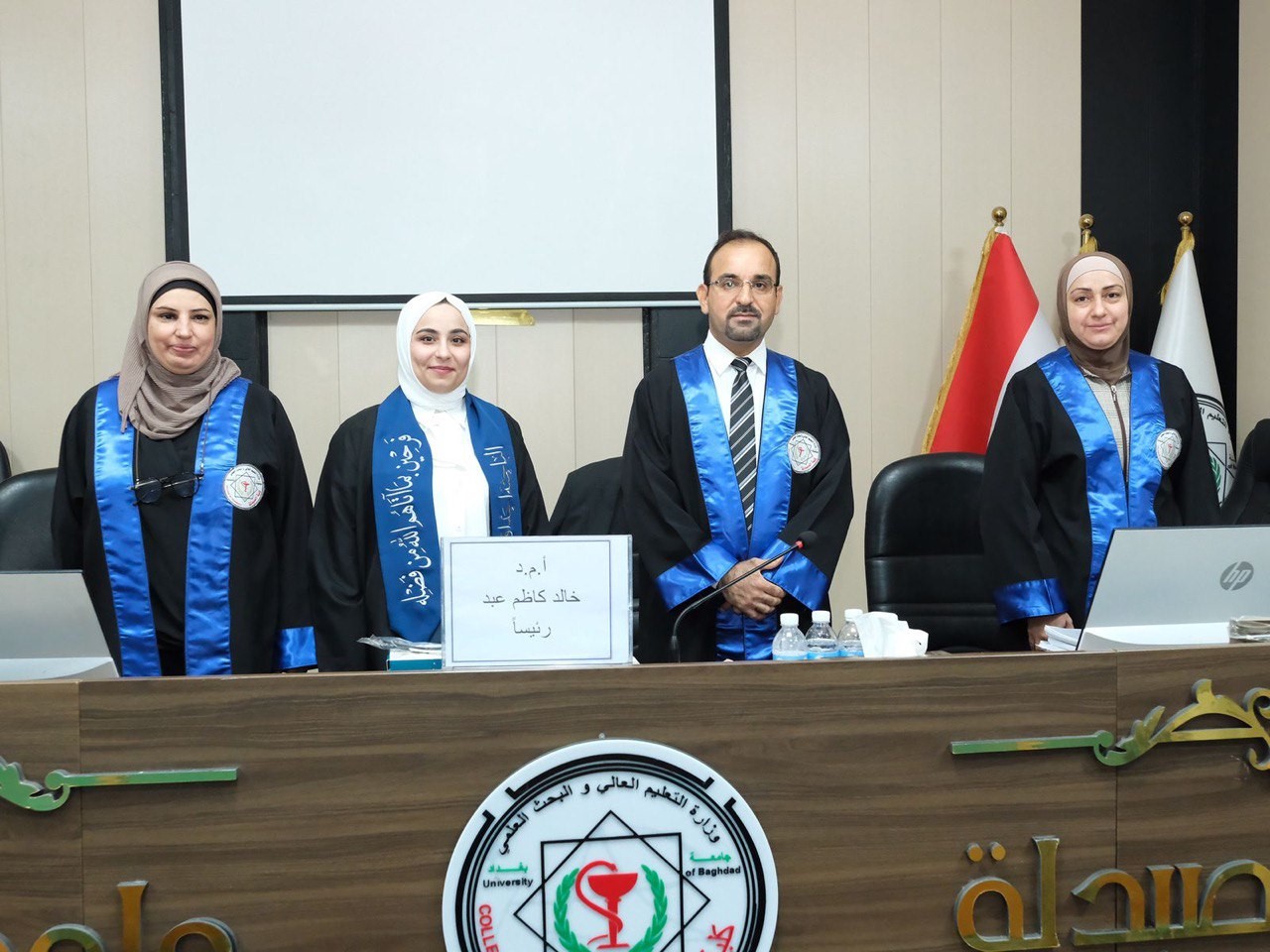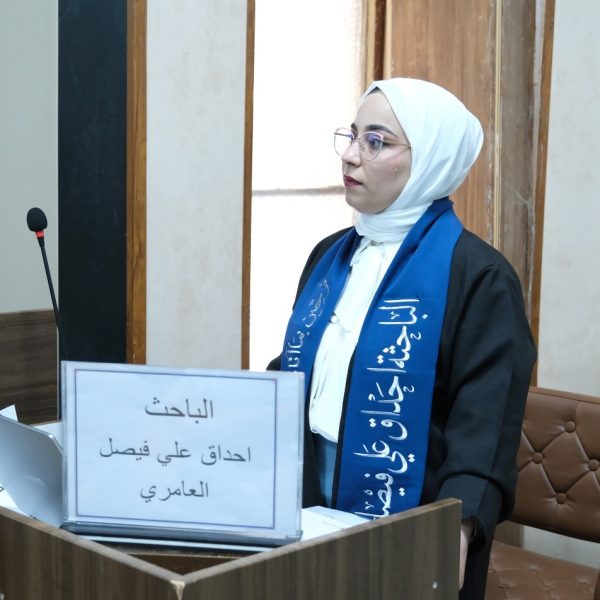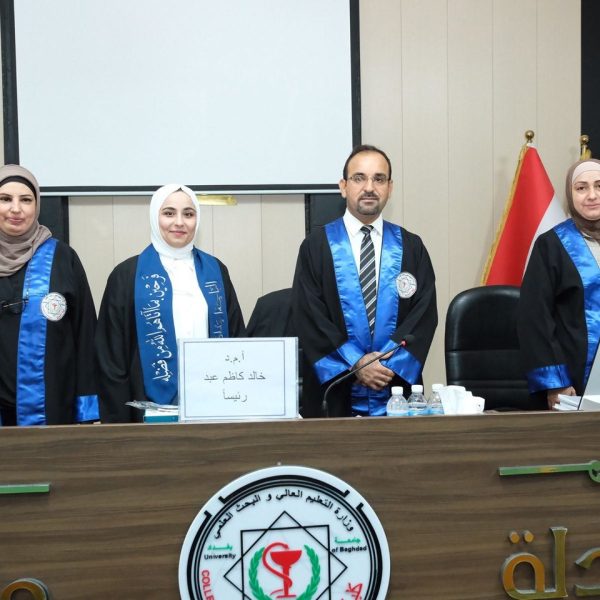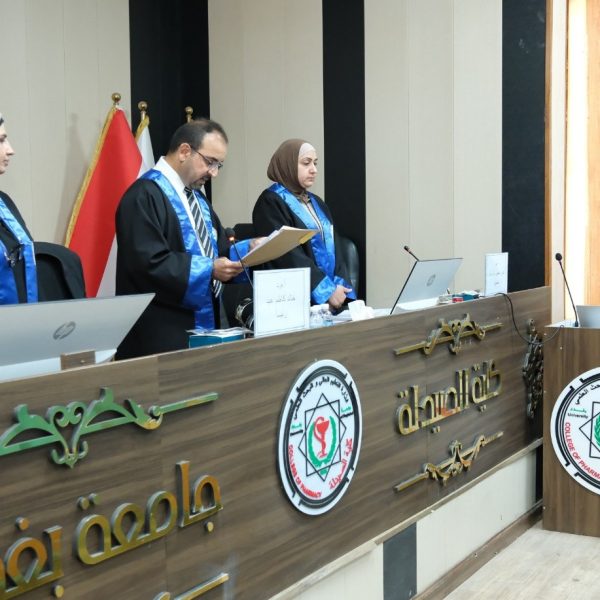The College of Pharmacy discussed the master thesis entitled “Development, Ex Vivo and In Vivo Evaluation of Meloxicam-Binary Ethosome Hydrogel for Topical Delivery” by student Ahdaq Ali Faisal Al-Amery and her supervisor, Assist. Prof. Dr. Fatima Jalal Jawad Al-Gawhari, in the Pharmaceutics Department. The study objective is to increase meloxicam solubility and permeation through the skin for topical delivery using binary ethosomal hydrogel. The binary ethosome was implemented according to the Box-Behnken design expert using soya lecithin, ethanol, and propylene glycol as independent variables and the optimized formula suggestion with the highest desirability to perform the best response criteria (vesicle size, dispersity index, encapsulation efficiency, and zeta potential). After that, the meloxicam binary ethosome was amalgamated in hyaluronic acid dispersion for hydrogel preparation. The optimized formula was formulated and validated. It demonstrates a 141±2.17 nm vesicle size, 0.23± 0.017 dispersity index, 81.2± 3.6 encapsulation efficiency %, and -44.81±1.2 mV good zeta potential. The optimized formula shows an amorphous form in powder x-ray diffractometer and a high in vitro drug release of >90% through 7 hrs by diffusion and erosion mechanism. The hyaluronic acid hydrogel was prepared and assessed. It shows an elegant physical appearance, shear thinning system rheological behavior, good spreadability, and skin-applicable pH value. The ex vivo permeation profile shows a flux rate of 70.45 μg/cm2/hr through 12 hr, and the in vivo anti-inflammatory effect was 53.2% ±1.3 through 5 hr. while plain hydrogel shows 0.6812 μg/cm2/hr flux rate and 14.7± 0.66 inflammation inhibition. The conclusion is that binary ethosome is more efficient for MLX local delivery than plain hydrogels. The future recommendation includes large scale- characterization of MLX optimized hydrogel, in-vivo study of MLX bioavailability from binary ethosome hydrogel in the synovial fluid and the blood, in vivo study of the skin safety of the binary ethosome hydrogel, and long term stability study.





